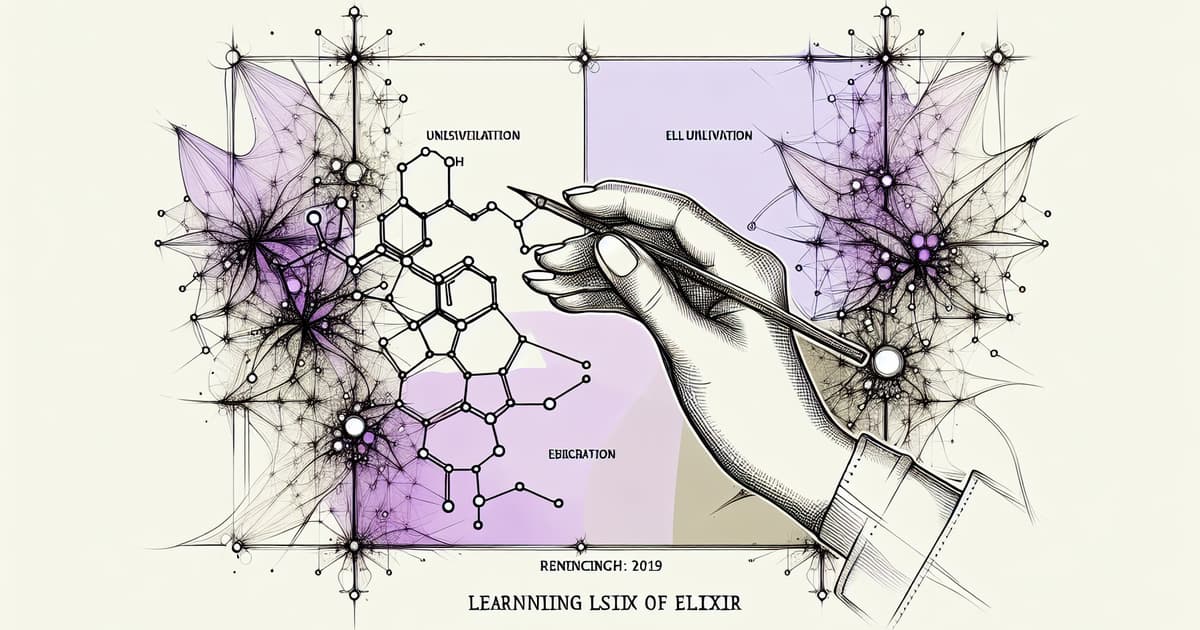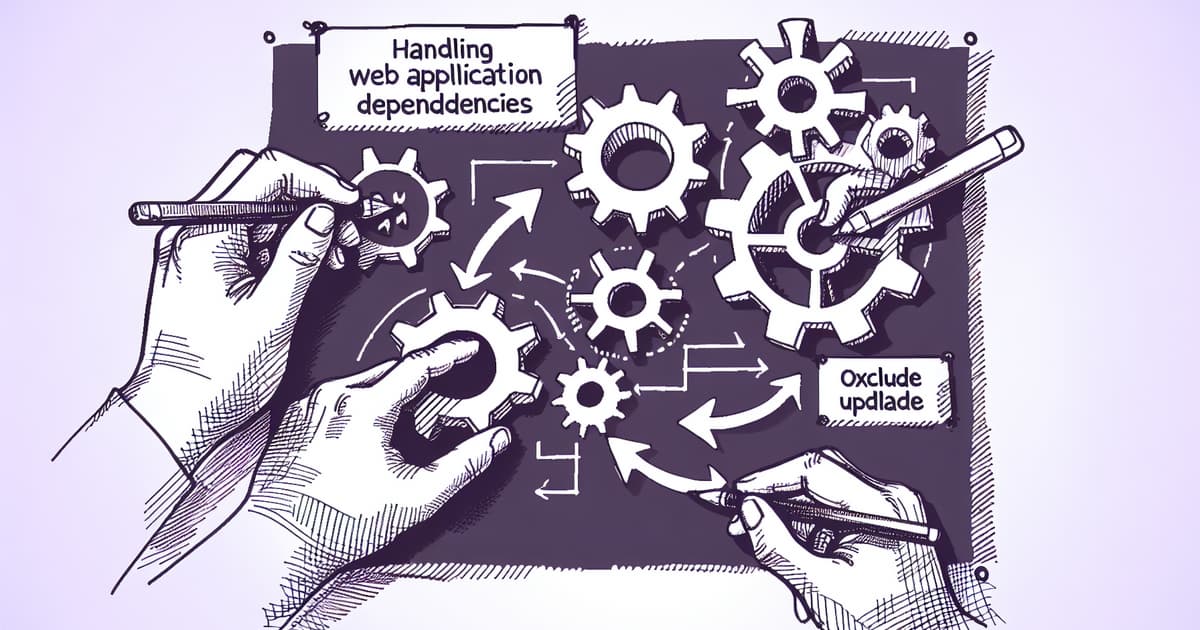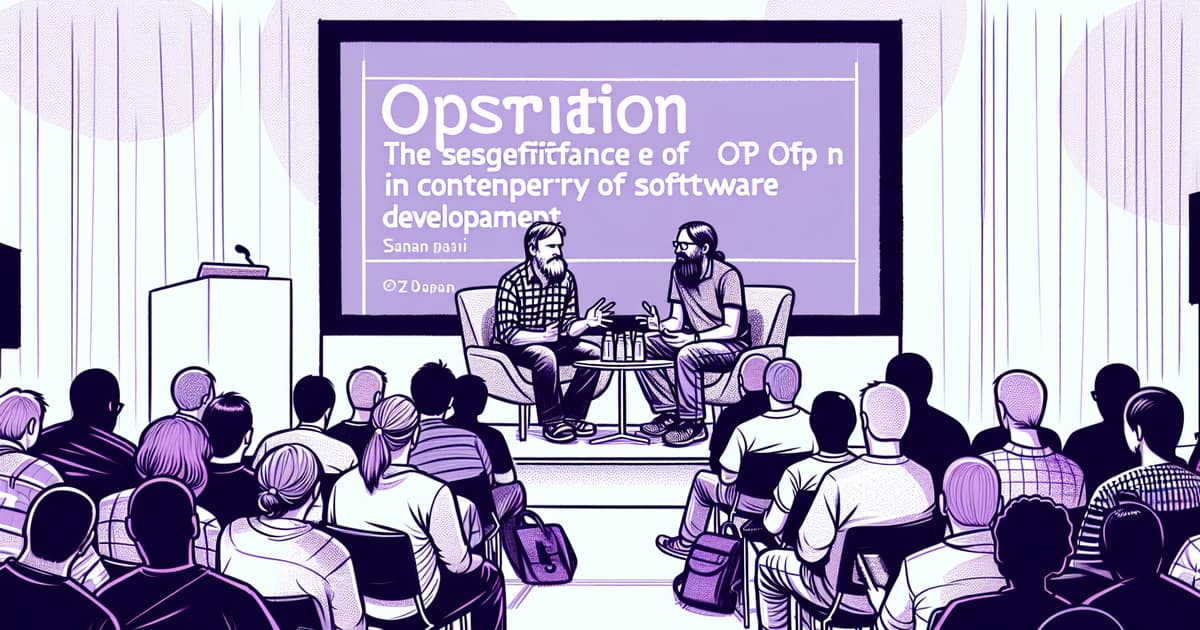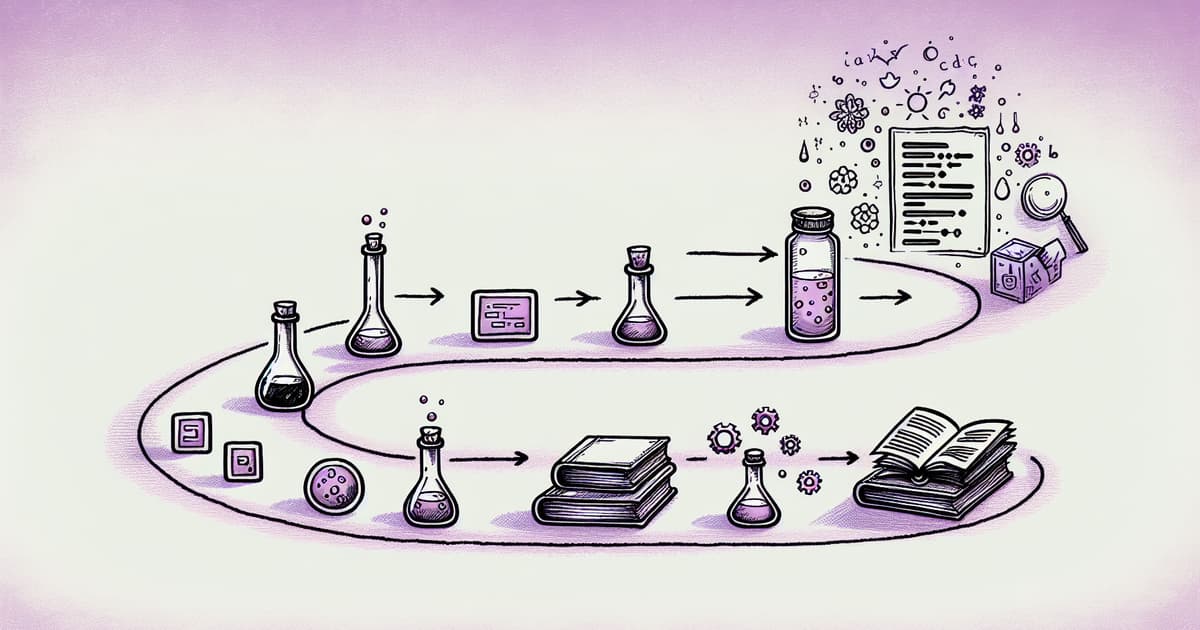We can't find the internet
Attempting to reconnect
Something went wrong!
Hang in there while we get back on track
OTP

The Erlang Open Telecom Platform (OTP) is a comprehensive suite of middleware, libraries, and tools designed to support the development and deployment of robust, scalable, and efficient applications. Encompassing the runtime system and ready-to-use components, it serves as the backbone for the Erlang ecosystem and by extension, Elixir, enabling developers to leverage its proven architecture for building fault-tolerant systems. Mastery of OTP allows Elixir developers to craft advanced applications like LiveView web interfaces, performant networking services, and even complex orchestrators that manage communication between nodes in a distributed system.
From live desktop applications like Livebook Desktop to musical control systems utilizing MIDI devices, OTP's concurrency tools and fault-tolerance patterns are essential. Developers emphasize OTP's importance in various domains, including IoT with AWS Greengrass integration, real-time games with ECSx, and remote firmware updates for secure device management. Its flexibility is also showcased in genetic algorithm implementations, solo SaaS ventures, and full-text search engine development using Phoenix and Elixir.
Maintaining code security, efficient dependency management, and learning advanced debugging and tracing are fundamental for Elixir developers aspiring to reach higher levels of proficiency. While OTP provides a robust set of features for building resilient systems, the 'let it crash' philosophy also extends to error handling, pushing developers to adopt patterns that embrace and recover from failures seamlessly. With a holistic understanding of OTP, Elixir programmers can effectively manage workflows, enhance observability, maintain persistent connections to external services, and even delve into fields like machine learning, all the while enjoying an engaging development experience.

Difficulties in Compiling Elixir NIFs on Windows using mingw
The author, hezwat, shares their experience of failing to compile a Native Implemented Function (NIF) using mingw on Windows, highlighting the challenges faced even with tools designed for ease of use like msys2.

Securing IoT Devices with Nerves and AWS Greengrass
Alfonso Gonzalez presents a method to integrate AWS Greengrass into Nerves firmware for secure remote firmware updates in IoT systems.

Looking for Advanced Elixir Learning Resources
thebrilliot is in search of educational resources to gain a deeper understanding of Elixir's VM, standard tools like Registry, and the BEAM environment.

Exploring Adobe's Elixir Styler for Code Formatting
In episode 176 of ElixirCasts, we explore Adobe's Elixir Styler, a formatter plugin for Elixir that can identify and fix code issues automatically.

Overview of ELXPRO and Elixir Opportunities with Gustavo Oliveira
Adolfo Neto discusses Gustavo Oliveira's Elixir journey and the ELXPRO course on his podcast. Gustavo emphasizes the market demand for Elixir developers and how the language enables simpler and faster solutions to complex problems. He demystifies the journey to becoming a senior Elixir developer, emphasizing the continuous learning aspect of a developer's career. ELXPRO aims to help developers master Elixir from scratch with real-world projects, best practices, and community support.

Introduction to Supavisor 1.0 for Postgres Connection Pooling
Stanislav Muzhyk introduces Supavisor 1.0, a tool designed for effective connection pooling with Postgres databases, now production-ready.

Managing State Across LiveViews in Elixir Application
NerdyByDesign is seeking advice on best practices for managing communication and state between LiveViews in an Elixir Phoenix application.

Erlang's Role in Learning and Using Elixir for Programming
Author hezwat inquires about the necessity of learning Erlang for Elixir programmers and seeks guidance on the learning path to use Elixir professionally.

Discussion on 'Machine Learning in Elixir' Book
Sean Moriarity announces the release of a new book, 'Machine Learning in Elixir,' which aims to educate readers on leveraging Elixir and the Nx library for practical machine learning tasks, including computer vision and natural language processing.

Summary of Thinking Elixir Podcast News Episode
Mark Ericksen, David Bernheisel, and Cade Ward discuss recent updates in the Elixir community, including new Elixir features, community news, and development tools.

Discussing Elixir Code Security with Filipe Cabaco
Filipe Cabaco joins hosts Allen Wyma and Sascha Wolf on the Elixir Mix podcast to talk about prioritizing code security within the Elixir language ecosystem. He shares insights into his article on the topic and discusses tools that can safeguard Elixir code bases.

Discussion on Embedded Software Development Using Elixir
Amos King joins hosts Adi Iyengar and Allen Wyma to discuss his work with embedded systems using Elixir and the Nerves project.

In-depth Look at Full-Text and Name Search in Postgres
Peter Ullrich, Senior Elixir Engineer at Remote, joins hosts Allen Wyma and Sascha Wolf on the Elixir Mix podcast to discuss his blog articles on full-text and name search features in Postgres, explaining replacement of Elasticsearch, and the benefits of using these features for Elixir developers.

Discussing Ash Framework in Elixir Applications
Zach Daniel talks about Ash Framework on the Elixir Mix Podcast and its use in Elixir applications.

Understanding Deployment Strategies for Phoenix Applications
Herman Verschooten, an Elixir and Elm enthusiast, discusses his approach for deploying Phoenix apps using systemd and goes in-depth on the benefits and drawbacks of different deployment methodologies.

Building a League of Legends Probuild with Elixir
Baptiste Chaleil discusses his experience creating a Probuild for League of Legends using Elixir, Phoenix, and LiveView technologies.

Exploring Remote Development in Elixir and Front-End Inspirations with Ben von Polheim
In episode 205 of Elixir Mix, Ben von Polheim, a freelance front-end developer, discusses the concept of remote development with Gitpod in the Elixir ecosystem, along with two Elixir libraries he built: live_motion and ex_cva.

Exploring Stenography for Coding in Elixir
In this episode, Paul Fioravanti discusses his experiences using stenography for programming in Elixir.

Discussion on Managing Dependencies in Elixir Web Applications
In this podcast episode, Allen Wyma and Sascha Wolf join as hosts to explore best practices for updating and managing dependencies in web applications. They share their experiences and strategies for ensuring smooth updates without introducing bugs.

Understanding Elixir Design Patterns with Sergey Chechaev
Sergey Chechaev discusses the application of design patterns in Elixir, sharing his perspectives as a software developer.

Discussion on Genetic Algorithms and Asset Portfolio Optimization with José Diogo Viana
José Diogo Viana discusses genetic algorithms to optimize an asset portfolio and shares insights into his company 'Finiam'.

Discussing Debugging Techniques in Elixir with Marcos Ramos
Marcos Ramos talks about debugging and tracing in Erlang and Elixir.

Panel Discussion on Utilizing Elixir in Projects
Hosts Adi Iyengar, Allen Wyma, and Sascha Wolf share insights on their recent Elixir projects, challenges, and discoveries.

Discussion on Haystack Full-Text Search Engine in Elixir
Philip Brown, an Elixir software engineer, joins the Elixir Mix podcast to discuss Haystack—a full-text search engine created using Elixir.

Deploying Elixir Applications with MRSK
Richard Taylor, the CTO at Dizzie, discusses his article on multi-cloud deployment for Elixir and Phoenix applications using MRSK.

Discussion on Scalable Elixir Application Structure
Adi Iyengar, Allen Wyma, and Sascha Wolf join this week's panelist episode to explore engineering approaches for startups and the ongoing debate of whether software engineering is really 'engineering'. They discuss building a large Elixir application with separate bounded contexts responsible for their supervision trees, highlighting the benefits and challenges of this approach and its balance between practicality and future-proofing. Topics ranged from microservices to new programming languages and patterns, offering insights valuable for developers at any level.

Elixir Developer Experiences and AI in Elixir
In this episode of 'Elixir Mix,' the panelists Adi Iyengar, Allen Wyma, and Sascha Wolf discuss their recent experiences and challenges while working on Elixir projects and the value of AI in the Elixir ecosystem.

Beam Radio Podcast: Bruce's Adventures and Elixir Resources
This episode features various resources and announcements for Elixir developers, including a mention of the upcoming GigCityElixir conference.

Summarizing ElixirConf 2023 Lightning Talks
Various speakers present diverse topics related to Elixir at ElixirConf 2023 Lightning Talks.

Understanding Credo for Elixir Code Analysis
In this episode, we explore Credo, an Elixir package for static code analysis, to maintain consistency and improve code quality.

Debate on OTP's Role and Evolution in Elixir Software Development
Dave Thomas, with counterpoints from Brian Mitchell, explores the topic of using OTP (Open Telecom Platform) in modern software development within the Elixir ecosystem.

Ambivalence Towards Elixir's Distributed System Capabilities
Software developer Aaron Harpole discusses his experiences with the Elixir programming language, focusing on its capabilities for building distributed systems and areas he believes could benefit from improvement.

Understanding Process Potential for Concurrency and Fault Tolerance in Elixir
Meryl Dakin discusses the power of OTP in Elixir for enabling multitasking and fault tolerance within applications. She presents a practical example of an app that deploys lessons to Github repositories to showcase how OTP's concurrency tools can help developers efficiently manage tasks, maintain global state, and ensure reliability, even for those transitioning from object-oriented programming backgrounds.

Introduction to the Erlang Ecosystem Foundation by Peer Stritzinger
Peer Stritzinger discusses the Erlang Ecosystem Foundation, outlining its mission and key objectives, including coordination of languages on the BEAM, support for open-source initiatives, and collaboration outside of Ericsson.

Structured Program Design in Elixir with Bruce Tate
Bruce Tate speaks about layered program design in Elixir, emphasizing the mental model of 'Do Fun Things with Big, Loud Worker Bees', which represents the concepts of Data, Functions, Tests, Boundaries, Lifecycles, and Workers.

Real-Time MIDI Control with Elixir
Geoffrey Lessel demonstrates how Elixir combined with OTP can control MIDI devices in real-time, addressing its advantages and potential issues for musical applications, and shows Phoenix and LiveView for visualization.

Enhancing Real-Time Interactivity with LiveView and User Experience Design
Zack Kayser and Beau Heubach, from Gaslight, discuss the integration of user experience (UX) principles with Phoenix LiveView to deliver seamless real-time features in web applications.

Exploring the Underlying Network of Phoenix Applications
Mat Trudel presents an in-depth analysis of the network and process management architectures underpinning Phoenix applications, particularly the supervision and process models within the BEAM.

Leveraging Workflow Graphs for Efficient Concurrency in Elixir
Zack White discusses a method for managing workflows in Elixir using directed acyclic graphs (DAGs) to improve concurrency and runtime flexibility.

Elixir's process management and the $callers and $ancestors features
Isaac Yonemoto discusses Elixir's secret features $callers and $ancestors and their role in process management.

Exploring Firmware Design in Embedded Systems with Elixir
Jon Carstens delivers a presentation on firmware design, focusing on its relationship with hardware and software and the role it plays in the development for embedded systems. He advocates for the relevance of firmware in a world increasingly dominated by smart devices and embedded technology.

Elixir as the Language of Choice for Large Language Models
Sean Moriarty discusses the challenges and opportunities presented by large language models (LLMs) and advocates for Elixir as an ideal language for developing LLM-powered applications.

Insights on Elixir Development and Learning Experience
José Valim presents a keynote speech on updates and the future of Elixir, including development and learning experience enhancements.

Introducing ECSx for Game Development with Elixir
Andrew Berrien introduces 'ECSx', a new framework for developing real-time games and simulations in Elixir, leveraging OTP's strengths.

Securing Erlang Distribution Protocol in Large-Scale WhatsApp Clusters
In his talk at ElixirConf 2023, Andrew Bennett discusses WhatsApp's experience managing a large Erlang/OTP cluster and the challenges they faced with the Erlang Distribution Protocol. He highlights the development of a Native Implemented Function (NIF) called "erldist_filter_nif" that allows them to control and reduce the potential impact of certain operations on the cluster. This session provides insights into innovations pushing the boundaries of Erlang and Elixir in massive-scale production environments.

Enhancing Junior Elixir Developer Skills
Savannah Manning explores the power of individualized learning in nurturing high-quality engineers, sharing her firsthand experience as a Junior Elixir developer and her journey of learning the language at a small startup that provided her with the ideal environment to grow and learn.

Setting Up an SFTP Server Using Elixir and Erlang
Max Mulatz and Andreas Knöpfle show how to set up a quick SFTP server in Elixir utilizing the Erlang ecosystem. They explain why an SFTP server is still relevant and explain the process of building one.

Introduction to LiveViewNative for Cross-Platform Development
Brooklin Myers delves into the powerful combination of Elixir and LiveView as they explore LiveViewNative application development for Android, iOS, and beyond.

Understanding Exception Handling in Elixir
Pulkit Goyal gives an introduction to exceptions in Elixir, discussing how to handle and recover from errors using Elixir's API, the 'let it crash' strategy, and various exception handling techniques. He also emphasizes the importance of monitoring exceptions in real-world applications.

Discussion and Insights on Elixir Development
Adi, Allen, and Sascha dive deep into observability and tracing in the Beam, discussing the advantages of using open telemetry and exploring different levels of observability, from Phoenix Live View to telemetry and tracing operations in large pipelines.
© HashMerge 2026